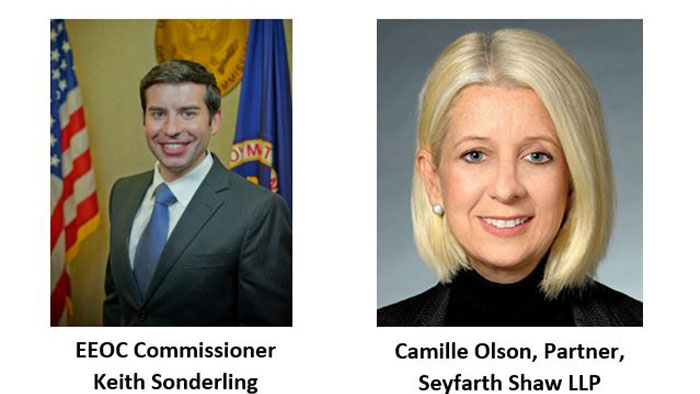EEOC Comm. Sonderling & Seyfarth’s Camille Olson: Risk of AI
Session from RILA’s Virtual Winter Workforce Summit
- By [ Austin Gold ]
- 03/03/2022

In addition to the compliance risks for employer’s using AI, Commissioner Sonderling highlighted that national guidelines are likely needed to provide certainty for employers – noting the growing list of states and cities that are preparing action in this space. On that note, Olson cited that New York City recently passed a law that will regulate AI-based hiring tools beginning January 1, 2023. With regards to the federal courts and litigation, Commissioner Sonderling stated that actual litigation on the federal side is in infancy, which is why it is so important for employers to be mindful of AI tools and how they interact with anti-discrimination laws.
Camille Olson and Commissioner Sonderling both stressed that the burden is on the employer to ensure that these employees have access to those accommodations that AI could overlook. Also, while there may be a competitive advantage for employers to use AI in the recruiting process, they stated that it is important that AI is not alone in the decision-making process, noting employers have affirmative obligations to these decisions. As leading retailers continue to explore the use of AI in hiring and other employment uses, RILA will monitor regulatory and legal developments to ensure members have up to date information to ensure compliance.
If you have any questions, please contact Austin Gold, Director of Government Affairs.
Tags
-
Technology & Innovation
-
Workforce


